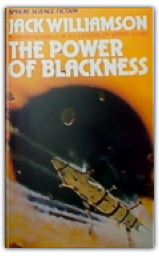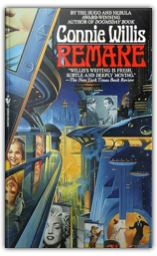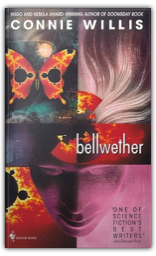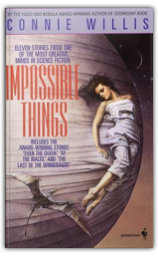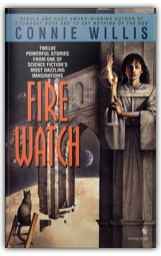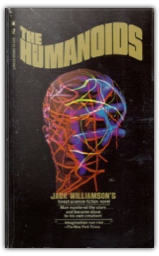 The Humanoids
Jack Williamson
The Humanoids
Jack Williamson
The perfect machines, the Humanoids came from the stars "to serve and obey, and protect men from harm." The result is a stultified society in which humans are not ALLOWED to do anything that might conceivably harm them, a velvet-gloved tyranny that absolutely crusehes the human spirit. Williamson wrote this in 1948, the same year Orwell produced 1984. The allegory between the tyranny of the Humanoids and the developing tyranny of our present-day government is too obvious to ignore. 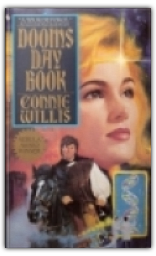 Doomsday Book
Connie Willis
Doomsday Book
Connie Willis
Connie Willis laboured five years on this story of a history student in 2048 who is transported to an English village in the 14th century. The student arrives mistakenly on the eve of the onset of the Black Plague. Her dealings with a family of "contemps" in 1348 and with her historian cohorts lead to complications as the book unfolds into a surprisingly dark, deep conclusion. The book, which won Hugo and Nebula Awards, draws upon Willis' understanding of the universalities of human nature to explore the ageless issues of evil, suffering and the indomitable will of the human spirit. 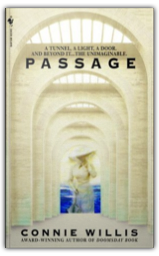 Passage
Connie Willis
Passage
Connie Willis
Most of us would rather not spend a lot of time contemplating death, but the characters in Connie Willis's novel Passage make a living at it. Joanna Lander is a medical researcher specialising in Near Death Experiences (NDEs) and how the brain constructs them. Her partner in this endeavour is Richard Wright, a single-minded scientist who induces NDEs in healthy people by injecting a compound that tricks the brain into thinking it's dying. Joanna and Richard team up and try to find test subjects whose ability to report their experiences objectively hasn't been wrecked by reading the books of pop-psychologist and hospital gadabout Maurice Mandrake. Mandrake has gained fame and fortune by convincing people that they can expect light, warmth, and welcoming loved ones once they die. Joanna and Richard try to quantify NDEs in more scientific terms, a frustrating exercise to say the least. |
 Made with Delicious Library
Made with Delicious Library
London, State zipflap congrotus delicious library Scott, Mike







